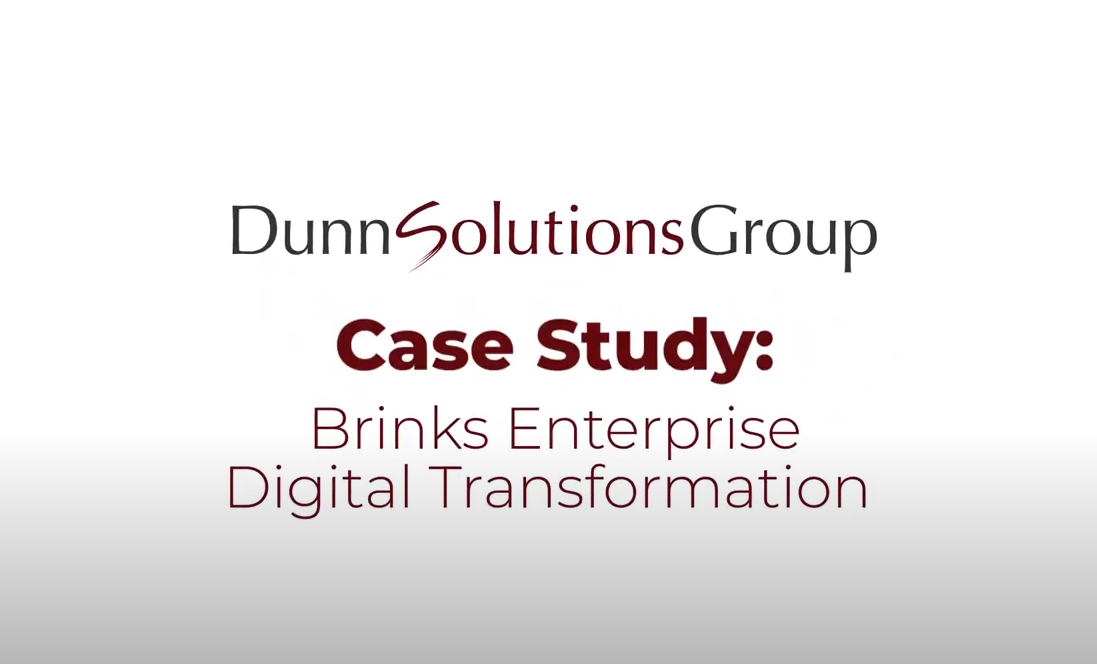This course provides in-depth coverage of the eight domains required to pass the CISSP exam:
Security and Risk Management
Asset Security
Security Architecture and Engineering
Communication and Network Security
Identity and Access Management (IAM)
Security Assessment and Testing
Security Operations
Software Development Security
Anyone whose position requires CISSP certification
Individuals who want to advance within their current computer security careers or migrate to a related career
- To be successful in this course, you should have a minimum of five years of experience working in IT Infrastructure and Cybersecurity.
- Cybersecurity Foundations
- CompTIA Security+ Certification Prep Course
- Cybersecurity Specialization: Architecture and Policy
- Cybersecurity Specialization: Governance, Risk, and Compliance
- Chapter 1: Security Governance Through Principles and Policies
- Security 101
- Understand and Apply Security Concepts
- Security Boundaries
- Evaluate and Apply Security Governance Principles
- Manage the Security Function
- Security Policy, Standards, Procedures, and Guidelines
- Threat Modeling
- Supply Chain Risk Management
- Chapter 2: Personnel Security and Risk Management Concepts
- Personnel Security Policies and Procedures
- Understand and Apply Risk Management Concepts
- Social Engineering
- Establish and Maintain a Security Awareness, Education, and Training Program
- Chapter 3: Business Continuity Planning
- Planning for Business Continuity
- Project Scope and Planning
- Business Impact Analysis
- Continuity Planning
- Plan Approval and Implementation
- Chapter 4: Laws, Regulations, and Compliance
- Categories of Laws
- Laws
- State Privacy Laws
- Compliance
- Contracting and Procurement
- Chapter 5: Protecting Security of Assets
- Identifying and Classifying Information and Assets
- Establishing Information and Asset Handling Requirements
- Data Protection Methods
- Understanding Data Roles
- Using Security Baselines
- Chapter 6: Cryptography and Symmetric Key Algorithms
- Cryptographic Foundations
- Modern Cryptography
- Symmetric Cryptography
- Cryptographic Life Cycle
- Chapter 7: PKI and Cryptographic Applications
- Asymmetric Cryptography
- Hash Functions
- Digital Signatures
- Public Key Infrastructure
- Asymmetric Key Management
- Hybrid Cryptography
- Applied Cryptography
- Cryptographic Attacks
- Chapter 8: Principles of Security Models, Design, and Capabilities
- Secure Design Principles
- Techniques for Ensuring CIA
- Understand the Fundamental Concepts of Security Models
- Select Controls Based on Systems Security Requirements
- Understand Security Capabilities of Information Systems
- Chapter 9: Security Vulnerabilities, Threats, and Countermeasures
- Shared Responsibility
- Data Localization and Data Sovereignty
- Assess and Mitigate the Vulnerabilities of Security Architectures, Designs, and Solution Elements
- Client-Based Systems
- Server-Based Systems
- Industrial Control Systems
- Distributed Systems
- High-Performance Computing (HPC) Systems
- Real‐Time Operating Systems
- Internet of Things
- Edge and Fog Computing
- Embedded Devices and Cyber-Physical Systems
- Microservices
- Infrastructure as Code
- Immutable Architecture
- Virtualized Systems
- Containerization
- Mobile Devices
- Essential Security Protection Mechanisms
- Common Security Architecture Flaws and Issues
- Chapter 10: Physical Security Requirements
- Apply Security Principles to Site and Facility Design
- Implement Site and Facility Security Controls
- Implement and Manage Physical Security
- Chapter 11: Secure Network Architecture and Components
- OSI Model
- TCP/IP Model
- Analyzing Network Traffic
- Common Application Layer Protocols
- Transport Layer Protocols
- Domain Name System
- Internet Protocol (IP) Networking
- ARP Concerns
- Secure Communication Protocols
- Implications of Multilayer Protocols
- Segmentation
- Wireless Networks
- Edge Networks
- Satellite Communications
- Cellular Networks
- Content Distribution Networks (CDNs)
- Secure Network Components
- Chapter 12: Secure Communications and Network Attacks
- Protocol Security Mechanisms
- Secure Voice Communications
- Remote Access Security Management
- Multimedia Collaboration
- Monitoring and Management
- Load Balancing
- Manage Email Security
- Virtual Private Network
- Switching and Virtual LANs
- Network Address Translation
- Third-Party Connectivity
- Switching Technologies
- WAN Technologies
- Fiber-Optic Links
- Prevent or Mitigate Network Attacks
- Chapter 13: Managing Identity and Authentication
- Controlling Access to Assets
- The AAA Model
- Implementing Identity Management
- Managing the Identity and Access Provisioning Life Cycle
- Chapter 14: Controlling and Monitoring Access
- Comparing Access Control Models
- Implementing Authentication Systems
- Zero‐Trust Access Policy Enforcement
- Understanding Access Control Attacks
- Chapter 15: Security Assessment and Testing
- Building a Security Assessment and Testing Program
- Performing Vulnerability Assessments
- Testing Your Software
- Training and Exercises
- Implementing Security Management Processes and Collecting Security Process Data
- Chapter 16: Managing Security Operations
- Apply Foundational Security Operations Concepts
- Address Personnel Safety and Security
- Provision Information and Assets Securely
- Managed Services in the Cloud
- Perform Configuration Management (CM)
- Manage Change
- Manage Patches and Reduce Vulnerabilities
- Chapter 17: Preventing and Responding to Incidents
- Conducting Incident Management
- Implementing Detection and Preventive Measures
- Logging and Monitoring
- Automating Incident Response
- Chapter 18: Disaster Recovery Planning
- The Nature of Disaster
- Understand System Resilience, High Availability, and Fault Tolerance
- Recovery Strategy
- Recovery Plan Development
- Training, Awareness, and Documentation
- Testing and Maintenance
- Chapter 19: Investigations and Ethics
- Investigations
- Major Categories of Computer Crime
- Ethics
- Chapter 20: Software Development Security
- Introducing Systems Development Controls
- Establishing Databases and Data Warehousing
- Storage Threats
- Understanding Knowledge-Based Systems
- Chapter 21: Malicious Code and Application Attacks
- Malware
- Malware Prevention
- Application Attacks
- Injection Vulnerabilities
- Exploiting Authorization Vulnerabilities
- Exploiting Web Application Vulnerabilities
- Application Security Controls
- Secure Coding Practices
Course Notes and Announcments
This 2024 updated course is the most comprehensive review of information security concepts and industry best practices, focusing on the eight domains of the CISSP-CBK (Common Body of Knowledge) that are covered in the CISSP exam. You will gain knowledge in information security that will increase your ability to successfully implement and manage security programs in any organization or government entity.
In addition to a textbook, you also receive access to Sybex's online interactive learning environment that includes:
Over 900 practice test questions with complete answer explanations.
More than 1000 Electronic Flashcards
A searchable glossary in PDF to give you instant access to the key terms you need to know
Global Knowledge Delivered Course
RELATED CERTIFICATIONS
CISSP - Certified Information Systems Security Professional
Follow-On Courses:
SSCP Certification Prep Course
CCSP Certification Prep Course
* Terms and conditions may apply.
Live Virtual:
Get engaging and impactful live, instructor-led training, regardless of your location.
Our Virtual Classroom Live online training format combines premium skills development technologies and our industry-leading instructors, content, exercises and peer collaboration to ensure that you get the highest quality professional development experience possible. Gain the skills and expertise that matter from the convenience of your home, work or wherever you have an Internet connection.
Engage with your instructor and fellow students via a learning platform and course material designed to ensure a stimulating and productive skills development experience.
Choose from sessions across a variety of time zones for training options that suit your schedule. Save time, money and effort without sacrificing learning quality by accessing our expert-led online training from the convenience of your home, office or anywhere with an Internet connection.
Attend from your PC, Mac or any iOS/Android tablet or smartphone. Connect with the class through your device audio or via toll-free phone number†, depending on available technologies and your interaction preferences.
Not finding any suitable dates? Contact us for additional available dates: education@kaartech.com
Gain core knowledge and experience to successfully implement and manage security programs and prepare for the 2024 CISSP certification.



